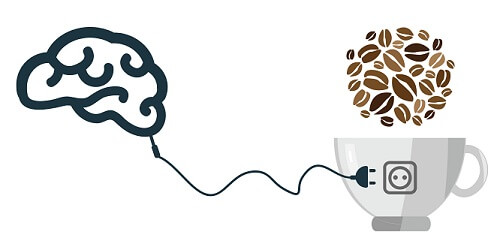Caffeine: Does it Boost Your Energy Levels?

For many people coffee is the key to life, while for other it is the most wretched liquid on the planet. Coffee goes by many names: java, black gold, mud, bean water, brew, etc. No matter what you call it, it is generally considered to be an energy booster. It’s the first thing people drink in the morning to gather energy and start their day. Coffee’s energy boosting effects are shrouded in mystery for a lot of people. Some swear by it and others claim it actually puts them to sleep. But coffee is not so simple.
To understand the energy boosting nature of coffee it is important to realize that black coffee does not provide energy in the traditional sense. While it is not entirely calorie free, it is mostly calorie free. Coffee is made from coffee beans which come from the coffee tree. A cup of plain black coffee has 2 calories in it on average. This is just not enough for your body to break down and supply an increase in energy.
The Role of Caffeine in Boosting Energy Levels
The key to coffee’s energy lies in its caffeine content. Caffeine is a fat-soluble chemical that travels through your bloodstream into your brain where it interacts with your neurotransmitters. Specifically, it attaches to adenosine, a quieting neural receptor. It blocks this transmitter from functioning properly and creates a stimulation effect. So drinking coffee actually makes your brain feel stimulated.
This stimulation is what you are experiencing when you think you are receiving energy from coffee. Your body creates energy by metabolizing carbohydrates, proteins, and fats. It breaks these compounds down and uses them to fuel your bodily functions. This energy is quantified in calories. Since coffee has very few calories, it can’t actually fuel your body with energy. But the brain stimulation you receive from coffee causes an increase in mental alertness and may increase your ability to focus or function mentally.

